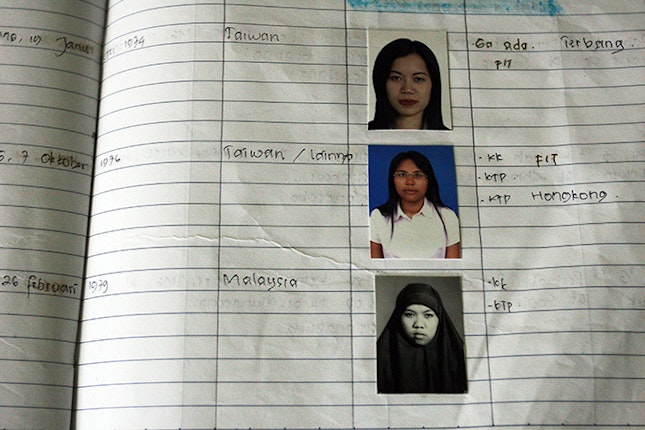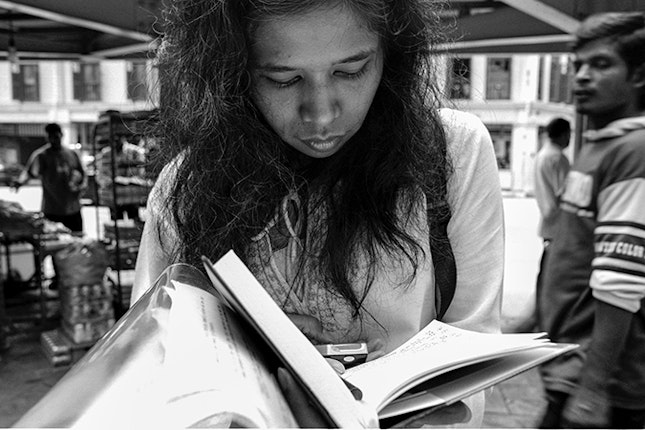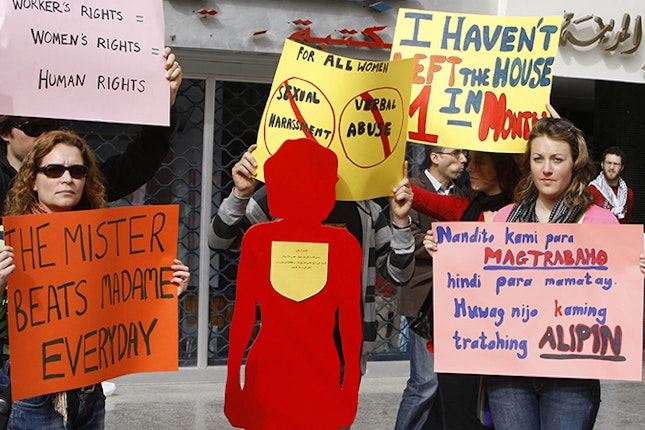For Migrant Workers, a Mobile Phone Can Be a Powerful Ally
By Elizabeth Frantz
The photographs in the slideshow above appear in the report Breaking the Isolation: Access to Information and Media Among Migrant Domestic Workers in Jordan and Lebanon.
You’re 3,000 miles from home. You live with strangers. Every day is defined by strenuous, endless tasks. You might get five hours of sleep tonight, huddled on the kitchen floor. You’re barely allowed to leave the house. No phone, no radio. What little television you watch is in a language you don’t understand. You’re cut off, not only from everything you know but also from the world around you.
This is daily life for many of the hundreds of thousands of domestic workers in the Arab region, most of whom are women. They come from all over the world—Ethiopia, the Philippines, Bangladesh, Sri Lanka—enticed by the promise of steady work. They are a vital part of the workforce. But they remain one of the most exploited and least protected groups of workers, their vulnerability made worse by their punishing isolation.
With no way to reach out for help, domestic workers are cheated out of wages, saddled with excessive workloads, and denied days to rest or travel. They report stories of food deprivation and physical, psychological, and sexual abuse. With few opportunities to form friendships or social networks, they also suffer emotionally and are prone to suicide.
Despite some progress in recent years, reports by the International Labour Organization and human rights groups suggest that harsh rules, particularly around freedom of movement and access to media, are still the norm. Some workers are more fortunate—lucking into positions with more lenient employers—but physical and psychological exile is all too common.
But what if domestic workers were no longer trapped in isolation? What if the communication gap could be bridged?
This is the starting point for a new report from the Open Society Foundations. It focuses on two countries in the region: Lebanon, where an estimated 200,000 Asian and African migrants are employed as domestic workers, and Jordan, home to another 70,000. The report asks: What kinds of information do migrant domestic workers most need? And what are the best ways to get it to them?
The study, the first of its kind, draws on interviews, focus groups, and survey data to reveal the scope of the problem and to make specific recommendations for ways to remedy it. Key themes include:
- the need to improve education and training of workers before they travel to overseas posts;
- the essential role of contracts, which many workers either don’t have or don’t understand;
- the power of the mobile phone, access to which could be guaranteed; and
- the opportunity for workers to build their own networks, including through community media ventures such as radio.
The report offers concrete ways that advocates and governments can help improve the lives of domestic workers. These are lessons that should echo not only in the Arab region, but all over the world.

Elizabeth Frantz is acting co-director of Equity at the Open Society Foundations.





